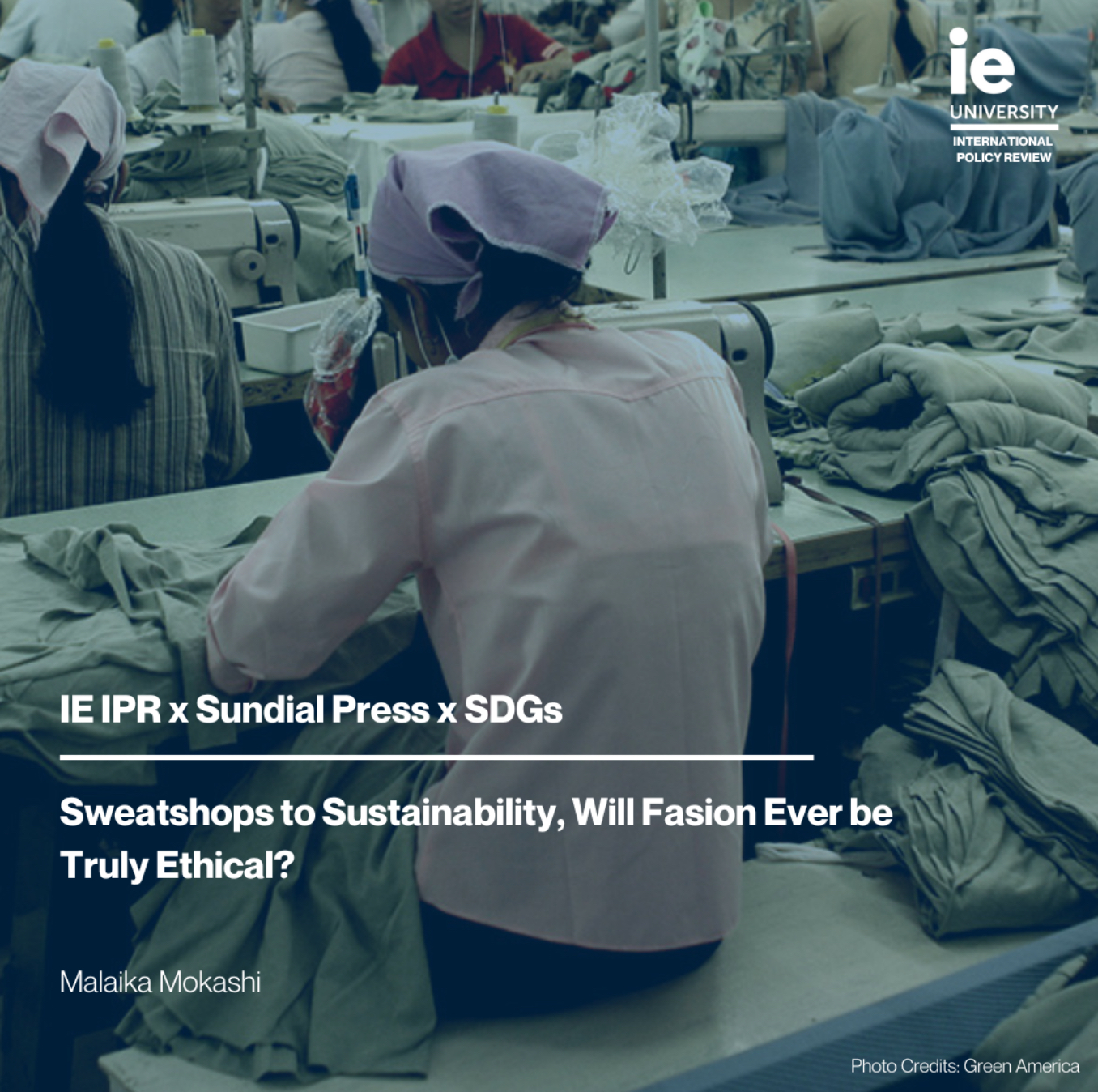
30 Jun Sweatshops to Sustainability, Will Fashion Ever Be Truly Ethical?
Malaika Mokashi
Columbia University and SciencesPo Paris, Reims.
E-mail: malaika.mokashi@sciencespo.fr.
Abstract
Fast fashion is currently an exceptionally profitable industry based on short lived trends that rely heavily on cheap and mass production. This business model allows for affordable fashion; however in the process, it fuels extreme labor exploitation, specifically in South Asia and Latin America, and more recently, even on certain digital platforms. Solving this issue is vital to reach SDG 8, which accounts for decent work and economic growth, and aims to promote better wages, more ethical labor practices, and create sustainable long economic growth. However, without immediate action,
fast fashion’s current exploitative cycle has the potential to evolve dramatically, shifting from sweatshops to an unregulated gig economy which leads to workers having less rights. In the process, it’s important to find the balance between ensuring economic growth and protecting human dignity. This article will evaluate the future of the fashion industry in comparison to SDG 9. It will analyze the impact of fast fashion’s labor model on economic sustainability and worker rights in developing countries. Furthermore, the article will investigate the role of ethical consumerism and policy
reform in solving these issues, especially as we transition to a more digitized global economy.
READ THE FULL ARTICLE HERE

Sorry, the comment form is closed at this time.